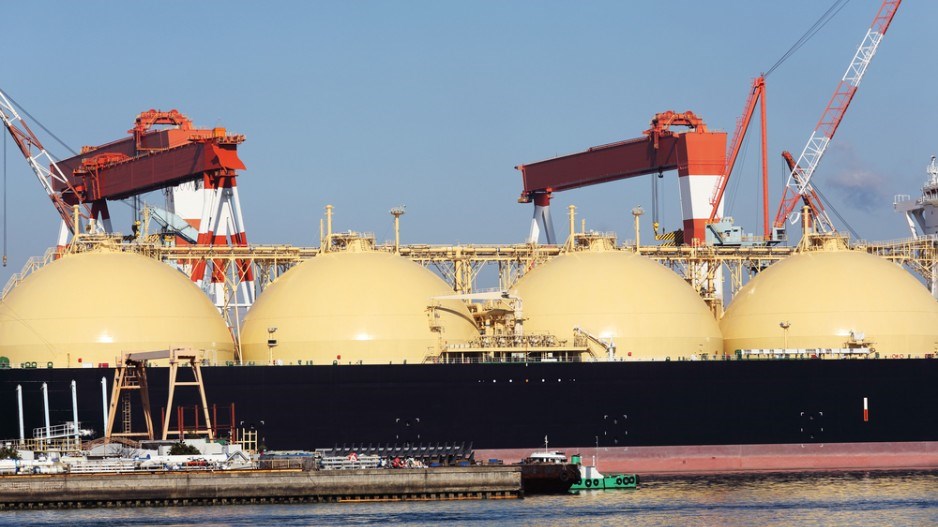Canada’s emerging liquefied natural gas (LNG) industry is at an exciting stage in its development on Canada’s west and east coasts.
FortisBC’s Tilbury LNG facility in Delta, B.C., is already operational. The $40 billion LNG Canada project – the single largest private-sector investment in Canadian history – is under development in Kitimat, B.C. Other projects, like the $1.6 billion Woodfibre LNG near Squamish, B.C., and Pieridae Energy’s $10 billion Goldboro LNG project in Nova Scotia, continue to progress and are nearing final investment approvals.
Global demand for LNG is expected to increase in the coming years as well, leaving open the possibility for further LNG facility development in Canada. Recently Chevron and Woodside Energy, co-proponents of the Kitimat LNG project, applied to the National Energy Board for a new export licence looking to nearly double the size of their proposed project.
From the upstream sector (extraction and pre-treatment of natural gas in B.C.’s northeast) through the midstream (transportation across the province through pipelines) to the downstream sector (liquefaction facilities and marine terminals located on B.C.’s coast), the scale of the opportunities for B.C. and Canada in the LNG sector is enormous. Those opportunities are found throughout the extended supply chains of these LNG facilities, as well as the supply chains of the pipelines and related infrastructure and businesses needed to support these projects.
LNG Canada has selected JGC Fluor BC LNG Joint Venture (JFJV) as its on-site engineering, procurement and construction (EPC) contractor. JFJV is committed to providing contracting and procurement opportunities for First Nations and local businesses.
The LNG Canada facility at Kitimat will be supplied by the $6.2 billion Coastal GasLink natural gas pipeline, currently under construction by TransCanada. There are four general contractors constructing sections of that project: Surerus Murphy Joint Venture, SA Energy Group, Macro Spiecapag Joint Venture and Pacific Atlantic Pipeline Construction Inc. Each general contractor will require a range of subcontractors and suppliers.
Certain construction-related services on the Coastal GasLink project have been designated as Indigenous opportunities. These services are: right-of-way clearing, camp management, security and medical. These designated Indigenous business opportunities, and a number of broader LNG industry opportunities, will be met by Indigenous businesses. Some Indigenous businesses may choose to go it alone while others will joint venture with non-Indigenous partners.
Joint ventures between Indigenous and non-Indigenous businesses will help Indigenous businesses to win more and larger contracts throughout the supply chain, and allows the non-Indigenous supplier to access more contracting and subcontracting opportunities.
Indigenous joint ventures provide important economic opportunities and may allow businesses across multiple sectors to contribute tangibly to reconciliation with Canada’s Indigenous communities.
Many factors contribute to the success of businesses looking to secure opportunities from the LNG industry through Indigenous joint ventures. Ensuring joint ventures and other business arrangements are structured to qualify for procurement opportunities is critical for accessing those opportunities. The revenue-sharing framework is typically an important and difficult element. It must reflect both the economics of the business opportunity and the joint venture partners’ relative risks. Providing for training, potential employment and other opportunities for Indigenous members is lacking. Tax issues and governance can also be important considerations.
Proper contracts and business structuring, and business partners working with advisers experienced with Indigenous business arrangements, ensure joint venture partners can take full advantage of their collaborative venture without the risk of misunderstandings or disputes in the future.
For more information on our Oil & Gas practice and how we can help, please contact:
Paul Wilson, partner
604-631-4748
&
Kai Alderson, partner
604-631-4956
BIV presents the Navigating Canada's LNG Opportunity panel, April 29th at the Vancity Theatre. For tickets and info, check out biv.com/navigatinglng.




